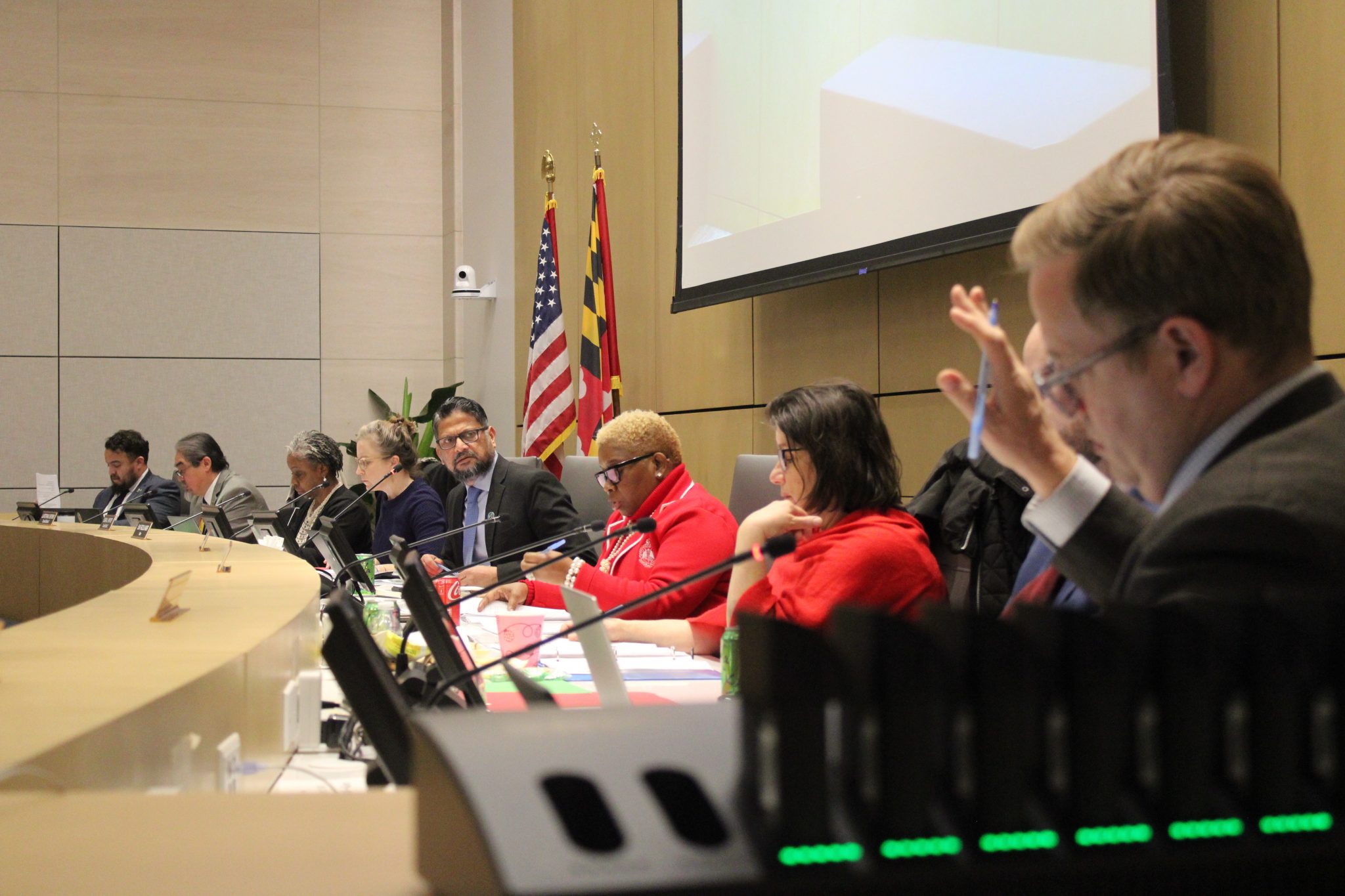College Park council members amended the city’s proposed property tax increases in the city’s 2025 fiscal year budget after a public hearing on Tuesday.
The city council passed an amendment by District 2 council member Susan Whitney 6-2 that would only increase the 2025 fiscal year commercial, industrial and apartment real property tax rates to 38.5 cents per $100 of assessment from the 2024 fiscal year rates of 33.18 cents. Previously, the proposed budget recommended the city raise the real tax rates to 40 cents per $100 of assessment.
The amendment also decreased the residential property rates for non-apartment units from the proposed 34.18 cents per $100 of assessment to 33.5 cents.
“I feel it is reasonable and I do not see it as unattractive to businesses,” Whitney said.
[College Park could see first property tax increase in more than a decade]
Currently, College Park has the lowest residential property tax rates in Prince George’s County for municipalities that have at least $1 billion in assessed value.
The amendment would ensure that College Park would still have the lowest commercial tax rate in Prince George’s County, Whitney said.
District 3 council member John Rigg supported Whitney’s amendment because it sets the city up better for future fiscal years, he said.
The council also considered an amendment by District 3 council member Stuart Adams, which would also lower the commercial, industrial and apartment property rate from the originally proposed 40 cents to 37 cents.
The proposed amendment would revert the residential tax rate to the levels from the 2014 to 2019 fiscal years, Adams said.
Under Adams’ amendment, the city’s emergency grant funding would decrease from $75,000 to $50,000.
Adams said the city could soon unlock an additional $500,000 of funds from the American Rescue Plan — a post-covid relief bill from the federal government — that could help offset the additional cuts to residential property tax rates his amendment proposed. In 2021, College Park received $22 million dollars from the American Rescue Plan.
Whitney did not want to rely on unknown possibilities, she said.
“I’m a little uncomfortable with … counting our chickens before they’re hatched,” Whitney said.
[Here’s a look at the College Park business scene in 2024]
However, city residents were still frustrated by the proposed increases.
District 1 resident Brian Roan said the increased rates could lead to many residents leaving the city.
“We’re looking at a massive drain of families and long-term residents and people who want to stay here, but who cannot,” Roan said.
College Park resident Dan Blasberg believes the city lowering residential tax rates in the 2019 fiscal year budget led to the city now having to increase taxes. The city should make the 2025 fiscal year increase less steep, Blasberg said, and spread out the proposed increases.
“Do it a penny at a time over the next four or five years,” Blasberg said. “You have it within your power to do so.”
Council members will vote on the full 2025 fiscal year budget on May 21.



